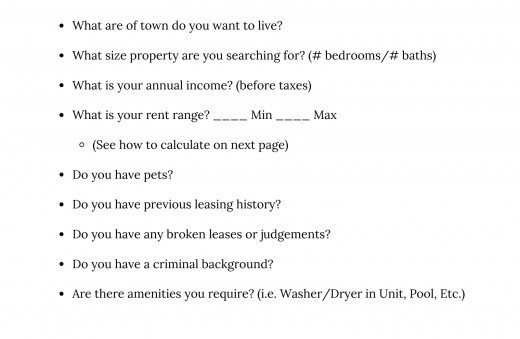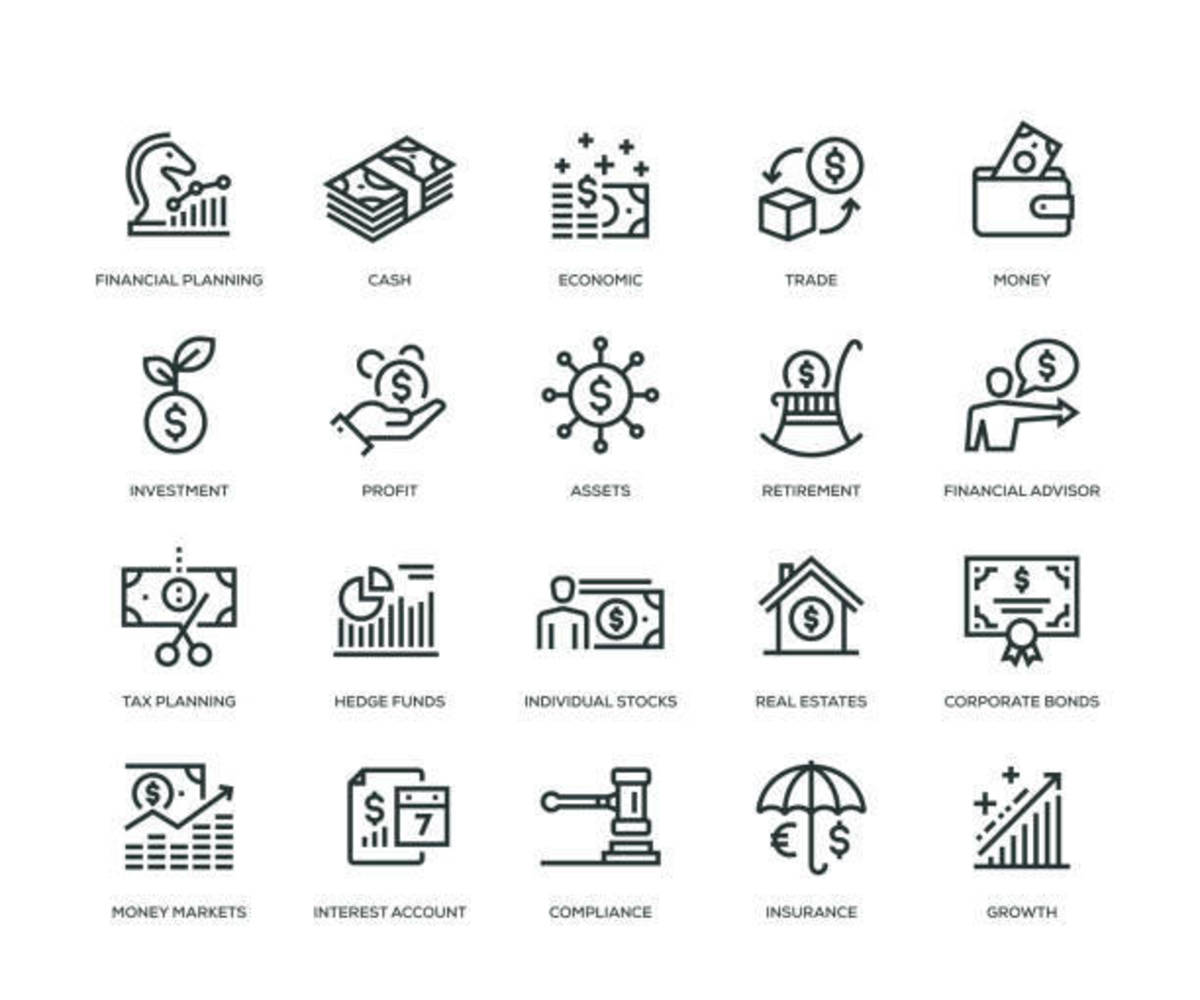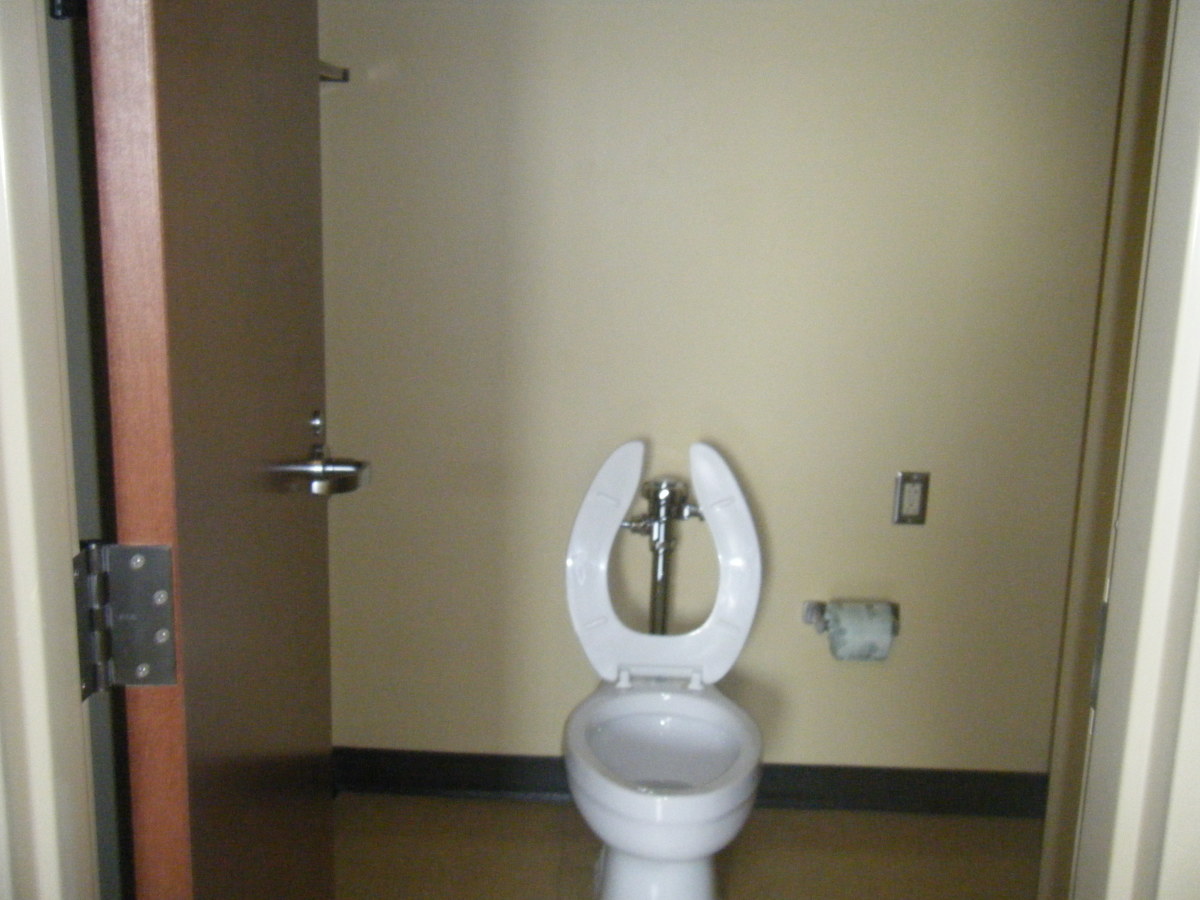How to Get an Apartment

Set Your Budget and Expectations
Start by establishing a realistic budget that encompasses rent, utilities, and other living expenses. In Texas, there are standard qualifications, though properties do have a right to adjust those to suit their needs. So just because you see the rental qualifications for the state on one site doesn't mean it will apply to all complexes in the state.
By pre-qualifying yourself, you will know where to begin in the search for your first rental home. You’ll save yourself a headache in the long run by knowing what you will and won’t qualify for.

How to Determine What You Can Qualify For
To calculate your income, calculate your weekly income.
To do this, multiply your hours by your base wage. Do no include tips, bonuses, etc. unless it is a consistent part of your income.
Hourly Wage x Hours per Week x 52 Weeks = Income
Next, divide your Income by 12 months = Your Monthly Income.
If you are on salary, divide your annual salary by 12 months. This equates to your monthly income.
To calculate the rental amount you may qualify for, divide the monthly income by 3 = This is the amount of rent you will qualify for if a property requires three times the rent.
Some properties only require 2.5 times the rent while other may require 4 and 5 times the rent.
To calculate what amount you’d need to make, take the rent amount and multiply by 3. That’s what you are required to make per month to qualify.
TIP: Pull your free annual credit reports to see where your credit stands.

Getting Approved for a Rental
By utilizing a locator, they will present your concerns to the properties they are reaching out to on your behalf. I recommend being straightforward. Let them know of any issues you are concerned about potentially getting you denied.
It is the leasing agent’s job to tell you if they think you would qualify based on that information. If you have a leasing agent tell you "well let's just run it and see what comes up" then walk away and go to the next one that will be able to answer your questions.
What You Need to Qualify for an Apartment
Realize first that most apartment complexes will accept an application all day everyday just to say they have "traffic". This doesn't help you or them in the long run and yet they still do it, making it a very expensive process for you.
Some complexes charge app fees PLUS admin fee PLUS deposits and only deposits are refundable if you are denied. Keep this in mind when submitting an application to any apartment complex. You'll spend a lot of money submitting applications all over town so by knowing what they are looking for up front will save you big bucks.
Don't waste time, or money, applying to different apartment complexes hoping that someone will approve you. Your locator will reduce this stress.
They Will Pull Your Credit Report
Yes, your credit report is run as a part of the application processing. First, because Federal law requires a person's identification be verified which includes your social security number and driver’s license number.
Second, your credit report holds valuable information for management. Your report will show previous addresses, debt owed to other properties as well as your other debts.
The main things an apartment complex looks for is money owed to previous rental addresses, money owed to utility providers (including electric and cell) and will also show if you owe Student Loans. All of these are things that can hurt you in getting approved.
Medical bills will also show up on your report but for the most part won't be held against you.
Know what's on your credit report prior to giving anyone permission to run it. This will save you time and money, not to mention the headaches.

Stable Employment History
The next thing a rental property will verify is your employment history. Believe it or not, employment history will show you are stable, so if you are changing jobs every few months, you may have a harder time of finding a place to call your own.
For example, most properties require that you be on your job for a minimum of 12 months. It is not uncommon for some properties to require that you have at least one to two years employment.
The purpose of this verification is to make sure you aren't likely to up and break your lease in the future. Obviously the longer you have been at your job, the better.
Do You Have the Ability to Pay Rent?
Employment history runs hand in hand with your ability to pay rent. Typically an apartment complex will require that you be able to show that you make 2-3 times the rent to ensure you can afford the rent amount.
For example, if a complex requires that you make three times the rent and the rent is $800 then to qualify you should make $2400 per month. (Before taxes) If you are self employed, it may be a little harder to verify income but not impossible. Tax returns are often approved documentation for verifying your income.
One common misconception is the income must be verified at every lease renewal. This typically is not the case.
Have a Good Rental History if You’ve Rented Before
A previous address is something most people don’t think will show up on their report if they don’t list it on their application. This is not true.
Believe it or not, most apartment complexes talk with one another and have a process of verifying information even if you haven’t written it down. The address will show up on your credit report and provides contact information for the previous landlord.
It is never a good idea to try to hide previous addresses. It will show up sooner or later.
When a property is verifying your rental history they are typically looking to see if you owe the property money, if you broke a lease or if there were any damages left to the property after you moved out.
Don't think your previous landlord has decided to forget that you owe them money; it just takes a little bit to get it added to your credit report. In the meantime, they are more than willing to let a potentially new landlord know about their rental experience with you.
Most Complexes Pull a Criminal Background Check
Most properties will also run a criminal background, and while not all records will get you denied, you are looking at a harder time of getting approved if you have a felony, just to be honest.
You have a better chance of being approved if you don’t neglect to disclose the background. It’ll still come out with your credit report so better to tell them up front instead of wasting money with an application fee.
FYI: Traffic tickets aren't typically held against you.

Expenses to Expect
When applying for an apartment, anticipate various expenses beyond the monthly rent.
- Expect an application fee, covering the cost of processing your rental application.
- Be prepared for potential charges associated with a credit check, and in certain cases, an administrative fee.
- Additionally, landlords may require a security deposit, typically one month's rent, as a safeguard against damages.
- Some landlords might also request a pet deposit if applicable and it is becoming the norm to charge “pet rent” usually around $15-$50 per month/per pet.
Time to Complete the Application
Landlords typically require various documents to evaluate your application.
Gather Necessary Documents:
- Proof of income (pay stubs, employment verification letter, or tax returns)
- Rental history (previous landlord references)
- Personal identification (driver's license, passport, or ID card)
- References (personal or professional)
What to Expect Once You’ve Been Approved for an Apartment
As a tenant, it's essential to thoroughly review the lease agreement for any fees that have not discussed and understand the terms and conditions to make informed financial decisions when securing your new rental space.
TIP: INFORM THE LEASING AGENT THAT THIS IS YOUR FIRST LEASE AND YOU WOULD LIKE THEM TO GO THROUGH EACH PARAGRAPH ON THE LEASE DURING SIGNING.
For example, Waste/Water/Trash are usually billed by apartment complexes while duplexes or houses will require you set up your own services. Be sure to note this in your lease.
Other items to note are how long guests are allowed to visit, when inspections are (this should be covered in the lease), parking where applicable, and any other item that you may not have asked about during the walk through.
Once the lease is signed, it is YOUR responsibility to walk the unit and complete the Inventory Condition Form. THIS IS IMPORTANT. You’ll only have a day or two to complete this form. Make note of any thing you find after move in, scratches on counters, walls, baseboards, bathroom, light fixtures, etc.
Your lease should also cover if you are responsible for maintenance issues or if the property manager dispatches maintenance personnel.
You’ve Signed Your Lease! Congrats!!
Building a positive relationship with your landlord and being a responsible tenant sets the foundation for a successful transition to your first apartment.
- Always pay your rent on time and keep lines of communication open.
- Report maintenance issues as soon as you can.
- Abide by your lease.
Now, the fun begins!
- Turn on utilities and internet.
- Submit your change of address to the post office for your zip code.
- Access the online portal for your property so you don’t miss rent payments.
- Start building credit with furniture rentals.
- Keep in touch with your Apartment Locator in case you want to move at the end of your lease or decide it’s time to buy a home!
- Take the time to explore your new surroundings. Locate nearby grocery stores, pharmacies, public transportation, and any other essential services.
Quick Survey Question
What Brings You to Texas?
To File a Complaint
If you ever feel you have been discriminated against you can go to The U.S. Department of Housing to file a complaint. There are also local divisions of Housing Authority that can help you. For instance, the Austin Tenant's Council will handle complaints against apartment complexes in the Greater Austin Area. In other words, if you have a problem with your landlord, repair issues or feel you have been discriminated against they are the ones to call first.
This content is accurate and true to the best of the author’s knowledge and is not meant to substitute for formal and individualized advice from a qualified professional.
© 2013 Sydney Spence





